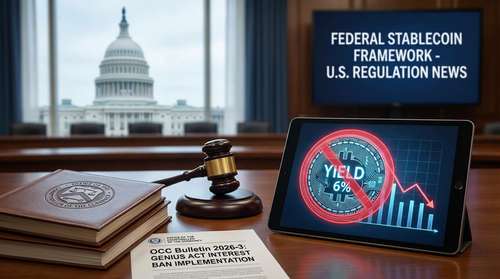Banco Central de Bolivia, Bolivia’s central bank, has lifted its ban on Bitcoin and other cryptocurrencies. This means that financial institutions can now engage in transactions involving digital assets.
The decision is aimed at modernizing Bolivia's payment system and revitalizing its struggling economy.
Bolivia Crypto Ban History
The Bolivia crypto ban started in 2014, prohibiting banking entities from interacting with cryptocurrencies. This ban was reinforced in December 2020 under Board Resolution N°144/2020.
The central bank lifted the ban to help Bolivia elevate its struggling economy and align with Latin American crypto regulations.
The recently approved regulations allow banks to transact in cryptocurrencies via approved electronic channels.
Even though banks facilitate the trading of crypto assets, the Bolivian government does not consider them as official currency, and companies are not obligated to receive them as payment.
New Regulations and Public Awareness
The new legislation was introduced in collaboration with the Financial Investigations Unit, the Financial System Supervisory Authority, and the central bank. These three government bodies produced the regulatory update, which became effective on June 26.
This change aligns Bolivia’s crypto regulation with the suggestions made by the Latin American Financial Action Task Force, making it another Latin American nation to adopt crypto to help boost its economy.
Banco Central de Bolivia also plans to create an awareness program for the general public as part of its Economic and Financial Education Plan.
El BCB, en coordinación con la ASFI y la UIF, a fin de modernizar el sistema de pagos, emite la Resolución de Directorio 084/2024, respecto al uso de los Activos Virtuales.
— Banco Central de Bolivia (@BancoCentralBO) June 26, 2024
Lee la nota completa: https://t.co/37Zpgg0V62#UnPaísUnidoEsUnPaísFuerte #ElBCBGarantíaDeLaEstabilidad pic.twitter.com/PX1uai8BeY
This plan aims to inform the public about the possible risks associated with cryptocurrencies and how to manage them responsibly.
The new regulations allow more freedom but still do not recognize cryptocurrencies as legal tender.
The only official currency is the "Boliviano," which means that businesses are not obligated to accept cryptocurrencies, and users should understand the associated risks.
Regional Context and Economic Pressures
Over the past few years, several Latin American nations have been struggling with a failing economy and rising inflation, forcing them to look for alternative economic solutions.
Bitcoin and cryptocurrencies have emerged as one of the most popular forms of a new economic model.
In 2021, El Salvador was the first country in Latin America and the only country in the world to adopt Bitcoin as legal tender alongside the United States dollar.
Mexico does not recognize cryptocurrency as legal tender but accepts it for value transfers and payments.
Additionally, Mexico taxes profits from cryptocurrency sales on centralized exchanges.
Brazil is another nation that has turned pro-crypto amid increased crypto adoption.
The country introduced income-tax regulations in 2023, allowing a 15% tax on crypto profits.
Argentina, another Latin American nation, elected a president who supports Bitcoin to address high inflation, inspired by El Salvador's example.
Most countries with crypto bans are now reconsidering their stance to explore new economic opportunities.
This reversal of the 2020 ban aligns with the suggestions from the Latin American Financial Action Task Force (GAFILAT), which advocates for updated crypto regulations.




